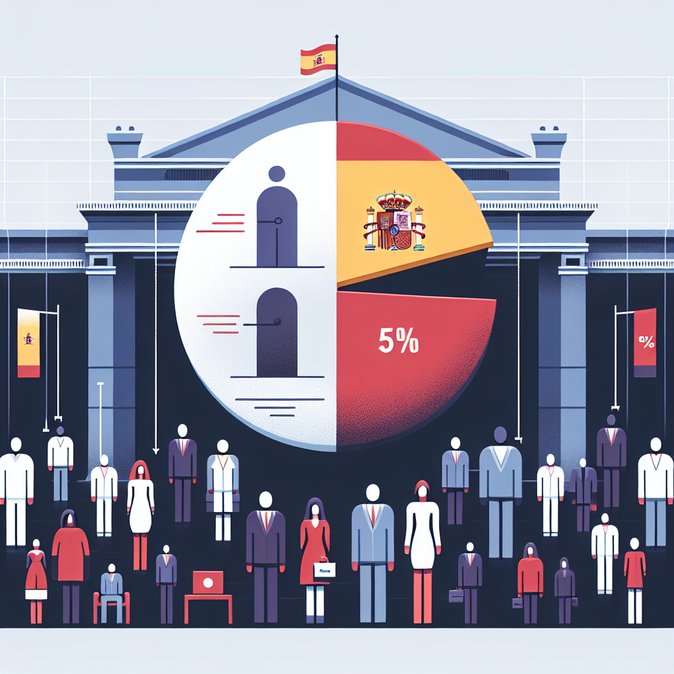
Immigration remains a fault-line in Spanish politics, and a new nationwide poll published on 8 November 2025 by La Gaceta and analysed by The European Conservative suggests attitudes are hardening. Asked whether Spain has ‘too many’ foreign residents, 59.7 % of respondents agreed. Concern is most acute among voters for the right-wing Vox party (73 %), but even 29 % of Socialist Party (PSOE) supporters share the sentiment.
The survey comes as the government rolls out a revamped Foreigner Regulation designed to regularise up to 900,000 undocumented migrants by 2027 and to ease labour shortages in technology, hospitality and elder care. Opposition parties on the right accuse Prime Minister Pedro Sánchez of pursuing an ‘amnesty’ that will overwhelm public services and skew future elections. Left-leaning parties counter that regulated workers contribute taxes and fill roles that Spaniards shun.
![Poll Shows 60 % of Spaniards Say the Country Hosts ‘Too Many’ Foreigners]()
Beyond headline figures, the poll reveals nuanced views: 66 % of Spaniards believe immigrants receive too much public aid, yet 60 % support ‘limited’ entry rather than a total ban. Only 11 % favour unrestricted immigration. Respondents are more cautious about arrivals from North Africa and sub-Saharan Africa than from Latin America, reflecting cultural and linguistic affinities.
For global mobility managers, the findings foreshadow tighter local scrutiny of corporate relocation projects. Companies expanding headcount from non-EU countries may face neighbourhood lobbying and local-authority delays, especially in mid-sized cities where labour-market competition is keen. Proactive community-engagement and clear communication of economic benefits will be essential to securing local support.
Politically, the data will influence forthcoming debates on Spain’s planned extraordinary regularisation and could embolden calls for stricter enforcement. Mobility practitioners should monitor legislative amendments and prepare contingency plans for possible caps on certain visa categories.
The survey comes as the government rolls out a revamped Foreigner Regulation designed to regularise up to 900,000 undocumented migrants by 2027 and to ease labour shortages in technology, hospitality and elder care. Opposition parties on the right accuse Prime Minister Pedro Sánchez of pursuing an ‘amnesty’ that will overwhelm public services and skew future elections. Left-leaning parties counter that regulated workers contribute taxes and fill roles that Spaniards shun.

Beyond headline figures, the poll reveals nuanced views: 66 % of Spaniards believe immigrants receive too much public aid, yet 60 % support ‘limited’ entry rather than a total ban. Only 11 % favour unrestricted immigration. Respondents are more cautious about arrivals from North Africa and sub-Saharan Africa than from Latin America, reflecting cultural and linguistic affinities.
For global mobility managers, the findings foreshadow tighter local scrutiny of corporate relocation projects. Companies expanding headcount from non-EU countries may face neighbourhood lobbying and local-authority delays, especially in mid-sized cities where labour-market competition is keen. Proactive community-engagement and clear communication of economic benefits will be essential to securing local support.
Politically, the data will influence forthcoming debates on Spain’s planned extraordinary regularisation and could embolden calls for stricter enforcement. Mobility practitioners should monitor legislative amendments and prepare contingency plans for possible caps on certain visa categories.







